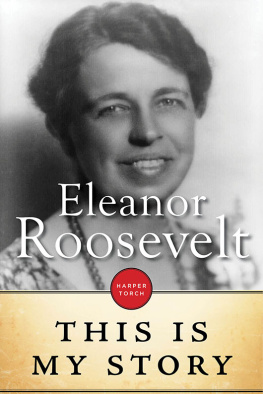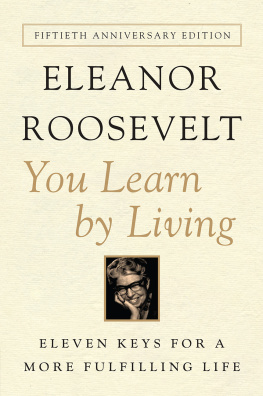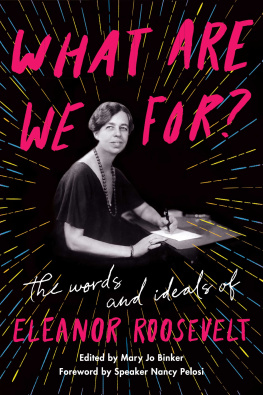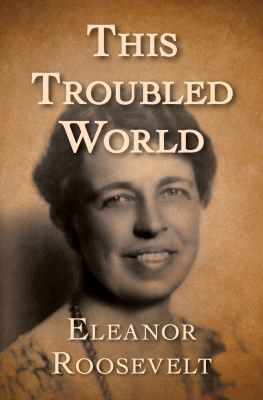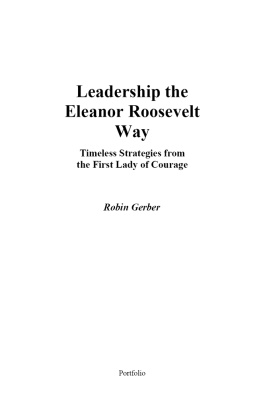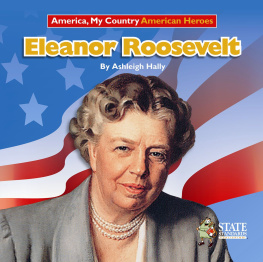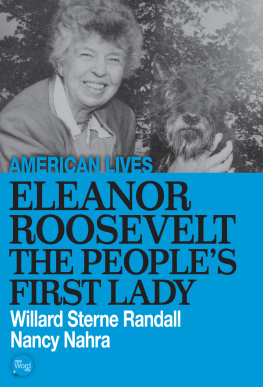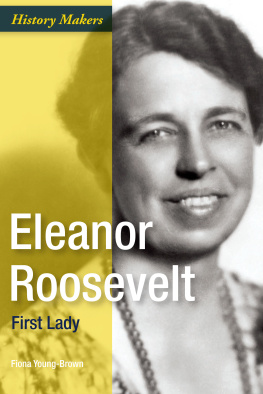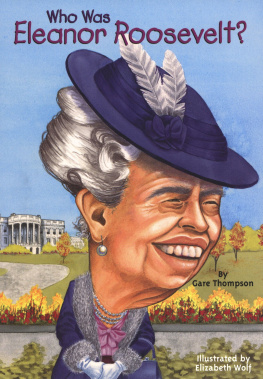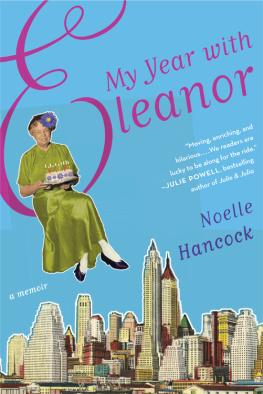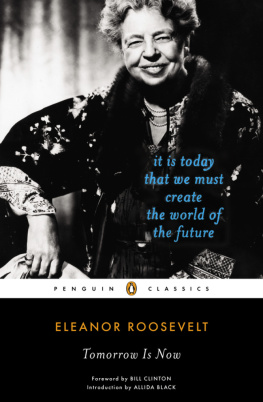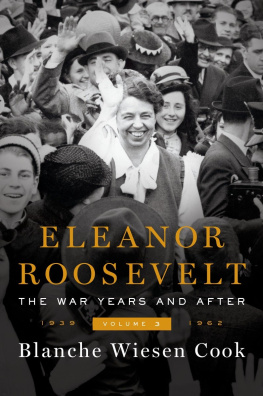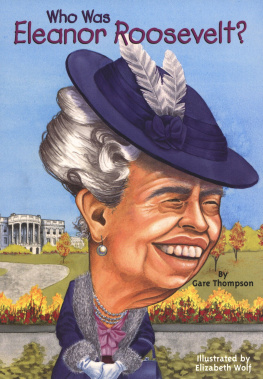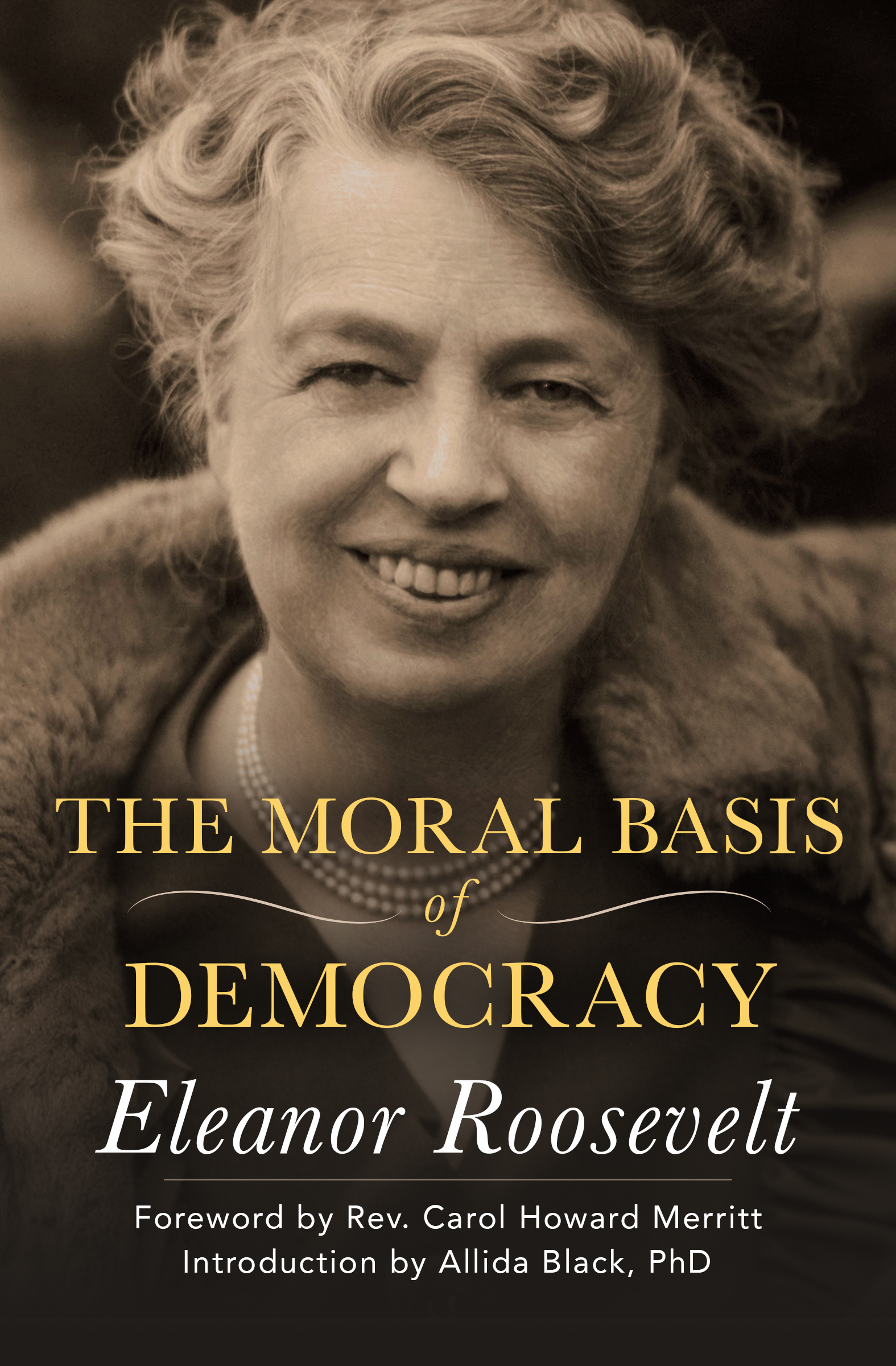The Moral Basis of Democracy
Eleanor Roosevelt

All rights reserved, including without limitation the right to reproduce this ebook or any portion thereof in any form or by any means, whether electronic or mechanical, now known or hereinafter invented, without the express written permission of the publisher.
Copyright 1940 by Eleanor Roosevelt
Foreword copyright 2016 by Rev. Carol Howard Merritt
Introduction copyright 2016 by Allida M. Black
Cover design by Amanda Shaffer
978-1-4976-6365-7
This edition published in 2016 by Open Road Integrated Media, Inc.
180 Maiden Lane
New York, NY 10038
www.openroadmedia.com

Foreword
I am a religious person. A clergy collar stiffly rings my neck on official occasions, just as certain ideals frame my life choices. Im a vegetarian. I meditate when I get angry. I wear a smudge of black on my forehead on Ash Wednesday and turn down the thermostat as a Lenten act of solidarity. I work with people who are homeless. Every week, I take a day off to rest. I try to practice love for God, self, and neighbor in everything I dowhether its how I recycle plastics, spend money, or weigh job opportunities. Of course, I make mistakes regularly and cant live up to my ideals, but then forgiving myself is part of my religion as well.
Its impossible to set aside that framework as I vote and act as a citizen. Religion doesnt simply inhabit a small, dank corner of my life one hour per week. I breathe it every day. I walk through the world, sorting out my role as a pastor and advocate. I work with hundreds of people who orient themselves in society, with the same sort of framework, working in any number of professions: They may be counselors, teachers, social workers, businesswomen, or activists. For us to give up our religious framework would be like a musician plugging her ears, a painter slashing his canvas, an engineer denying numbers, or a chef discarding her spices. We simply order our lives around the love of God, neighbor, and self. Its the way our brains are wired.
This love of God, neighbor, and self encourages me to seek peace in times of warfare, preservation in the destruction of the earth, and dignity for those who are oppressed. But I understand the dangers of religious thinking in the midst of politics and so appreciate the separation of church and state.
My Protestant tradition is not the only stream of religious thought in our great and diverse country, and for many people with more conservative religious views, there is the desire to protect and provide for a traditional family unit. In their understandings, they can preserve gender norms and roles by taking away the rights of women or same gender couples. On the basis of religious freedom, they have argued against womens access to medical care and encouraged businesses to discriminate against lesbian, gay, bisexual, and transgender people. Certain Christian counselors want to maintain their credentials while refusing to serve LGBTQ clients.
Of course, these are todays issues. In the past, religion has also been used to uphold slavery, maintain segregation, deny scientific discoveries, and keep women out of the workforce.
So we get caught in a snare. As a clergy person, I care about religious freedoms, but I worry: Do we protect the religious views of a minority if they take away rights from other individuals? Do we protect religious views to the detriment of the freedom and progress of the larger society? If we do protect a right to discriminate, then how do we avoid a theocracy where the majority must bow to the will of particular conservative morality?
This is where Eleanor Roosevelts The Moral Basis of Democracy is particularly helpful. Roosevelt understands that democracy has roots in religious beliefsboth are built on the principal of loving your neighbor as you love yourself.
Love of self and love of neighbor maintain a particular balance in religion and democracy. In this equilibrium, the love of self stays intact. The individual does not dissolve as it might under a totalitarian regime, but is encouraged to participate in society. The individual has the freedom to be informed, express opinions, attend meetings, organize people, protest injustice, and vote regularly.
Furthermore, the love of self should not descend into narcissism, selfishness, and greed, because it must stay in tune with the love of neighbor, which works to ensure the good of society. Roosevelt reminds us, Our own success must contribute to the success of others. Its no wonder that when Franklin D. Roosevelt created the New Deal, he reached out to clergy, and over 30,000 of them responded with overwhelming enthusiasm, because the love of neighbor translated into a War on Poverty.
Rereading Eleanor Roosevelts The Moral Basis of Democracy is absolutely vital today. She reminds us that our religious freedoms can come into balance in a civil society. Roosevelt lifts up the idea that no one should be harassed on account of religious opinions, provided that the assertion of those opinions does not disturb the public order established by the law. Eleanor Roosevelts words act as a stunning reminder of how we must advocate for the rights, freedom, and dignity of those who endure poverty and discrimination. She encourages us to remember the promises we make as Americanand globalcitizens: to love our neighbors as we love ourselves.
Rev. Carol Howard Merritt
Chattanooga, Tennessee
2016
Introduction
T he Moral Basis of Democracy is a glimpse into Eleanor Roosevelts soul, presenting her faith in democracy and her insight into the hard work and self-examination it requires. It took guts to write this book. First published during World War II, it was not an easy time to extol democracy, its inherent commitment to inclusion, and the possibility of a government grounded in a thoughtful, committed, and diverse community. It seems to me, she wrote, we have to take an account of just what our condition is; how much Democracy we have and how much we want to have.
In 1940, the United States stood surrounded by war, trapped between Nazi-occupied Europe and the Japanese invasion of South Asia. The American economy had only partially recovered from the severest, longest lasting economic crisis in its history. Franklin D. Roosevelt was in the last year of his secondand supposedly finalterm in office. No trusted successor stood ready to take his place.
The nation was anxious. An overwhelming majority of Americans did not want to fight Germany and were convinced the United States would lose the war. A vocal minority, led by the aviator Charles Lindbergh, argued that if the US defeated Germany it would open the door to a Russia that could fatally wound Western civilization. Black American leaders asked why the US could curse Aryanism abroad and embrace segregation at home. Jewish Americans debated how best to confront anti-Semitism and how vocal they should be in addressing it. Young Americans, hearing horrors stories of World War I and its impact on the American economy, worried about the draft and tried to reconcile their antiwar ideals with the daily aggression reported in the press.
Eleanor Roosevelt understood this more than most. She had spent the last seven years crisscrossing the nation, seeing firsthand the gut-wrenching impact the Great Depression had on families, workers, farmers, teachers, and businesses large and small. She had traveled to Europe in the immediate aftermath of World War I, walking through lands ravaged by war and meeting with citizens scarred by the events. She embraced the League of Nations and championed the World Court. At home, she met with shell-shocked veterans and forced the Wilson Administration to address their concerns, and she repeatedly met with student organizations determined to prevent another war. In 1938, she argued for economic containment in This Troubled World . In 1939, in her most public stand against racial bigotry, she aligned with African American opera singer Marian Anderson to ask why we cursed Hitler but remained silent on Jim Crow.


